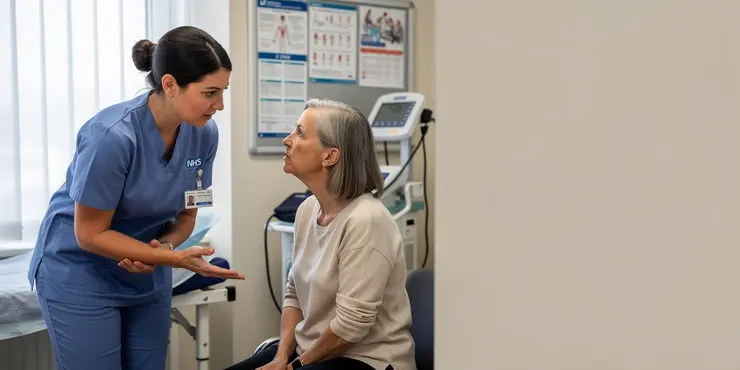
Find Help
More Items From Ergsy search
-
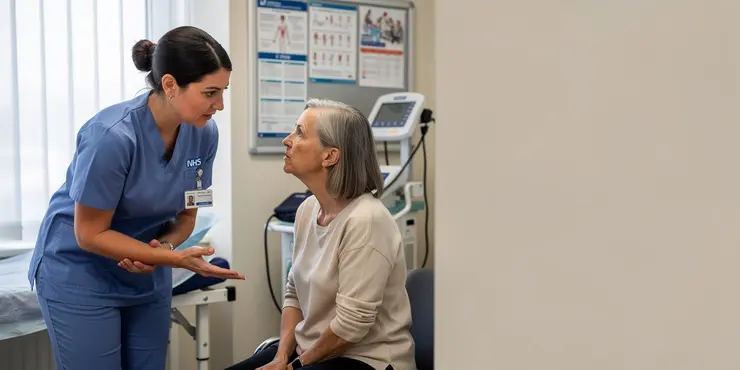
Should I take any special precautions if I have a medical condition during a heatwave?
Relevance: 100%
-

Are there any special precautions for pets during a heatwave?
Relevance: 81%
-
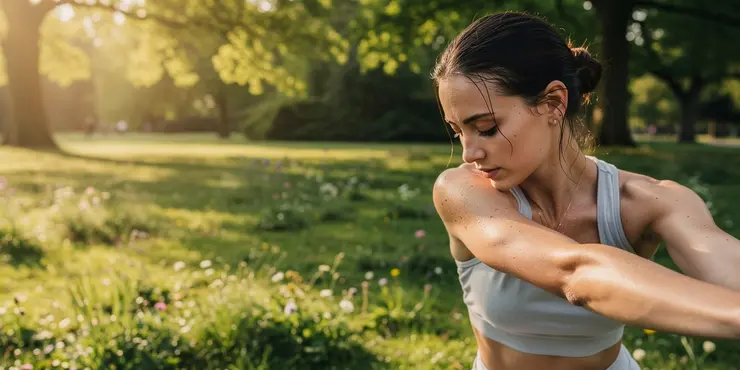
Is it safe to exercise outside during a heatwave?
Relevance: 56%
-
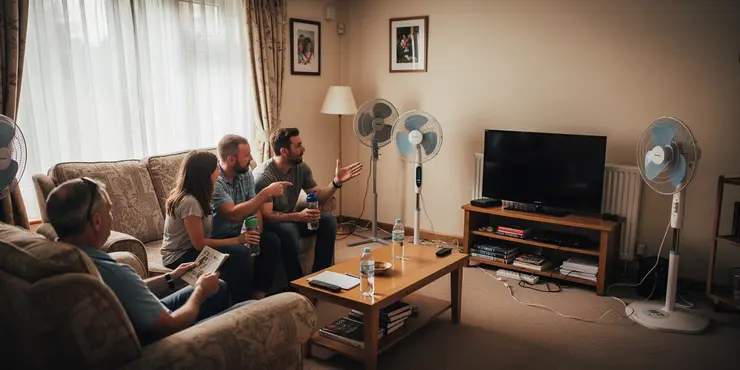
What should I do during a heatwave?
Relevance: 50%
-
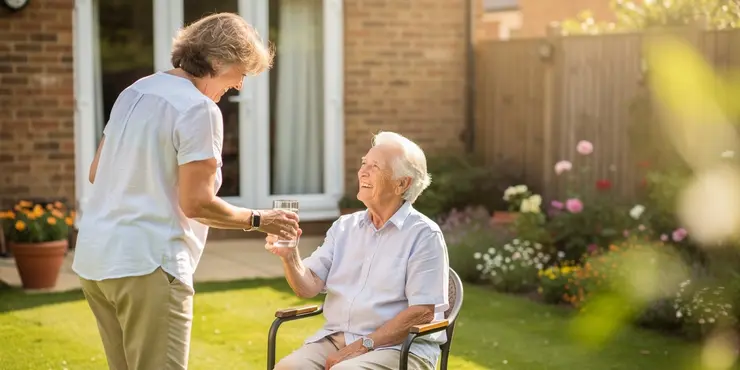
Is it necessary to check on neighbors during a heatwave?
Relevance: 49%
-
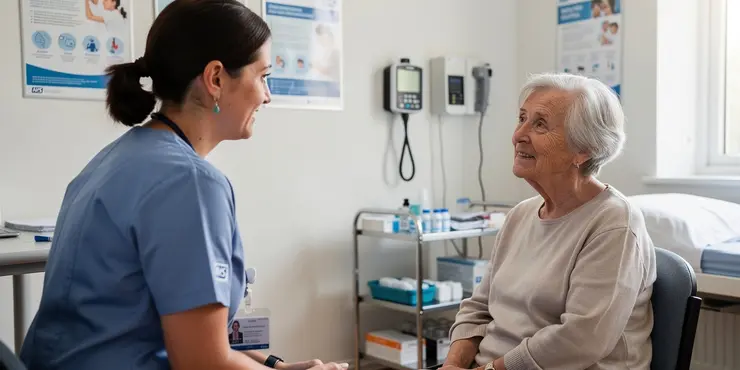
What are the long-term effects of repeated heatwave exposure?
Relevance: 46%
-
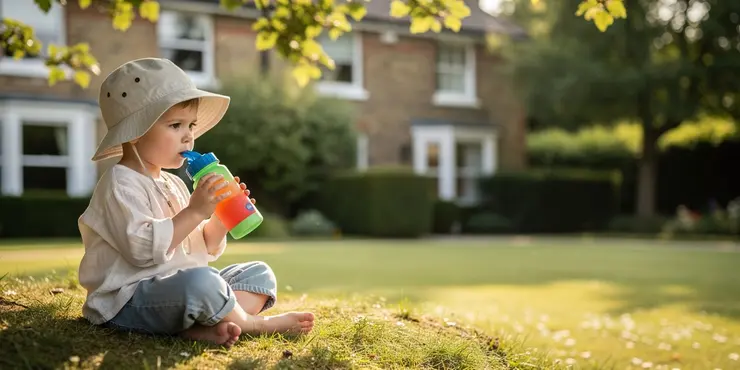
How can I keep children safe during a heatwave?
Relevance: 46%
-
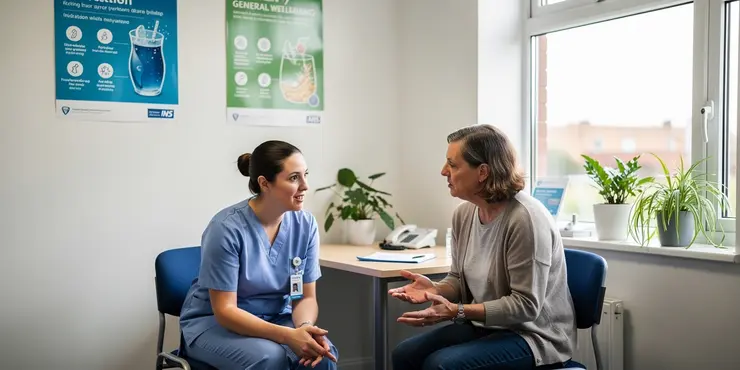
Should I avoid alcohol during a heatwave?
Relevance: 44%
-
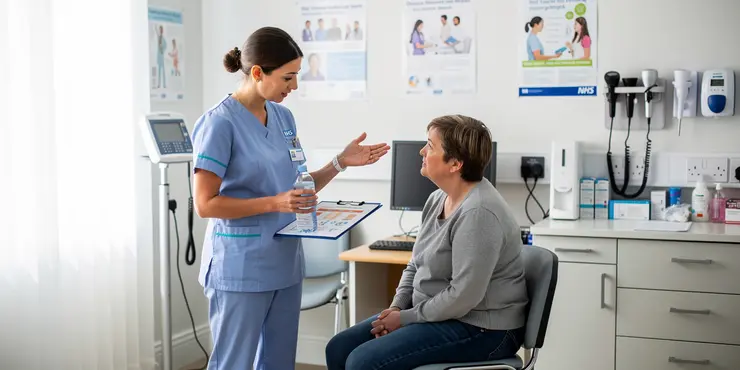
How much water should I drink during a heatwave?
Relevance: 43%
-
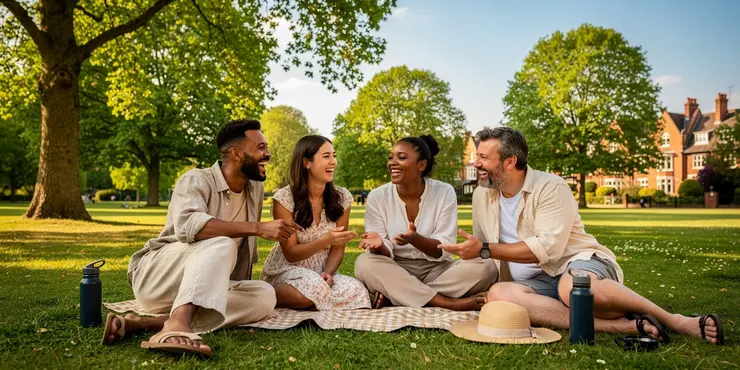
What should I wear during a heatwave?
Relevance: 42%
-
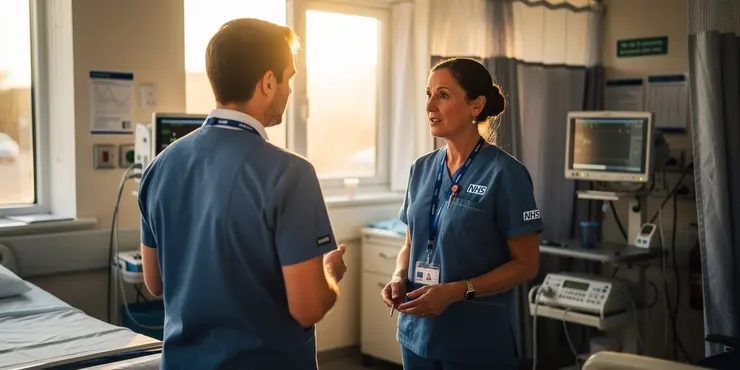
What apps or services can help me monitor the weather during a heatwave?
Relevance: 41%
-
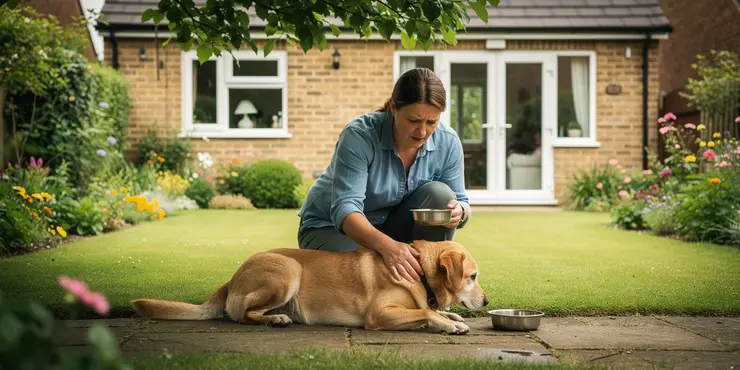
How can I ensure pets are safe during a heatwave?
Relevance: 41%
-
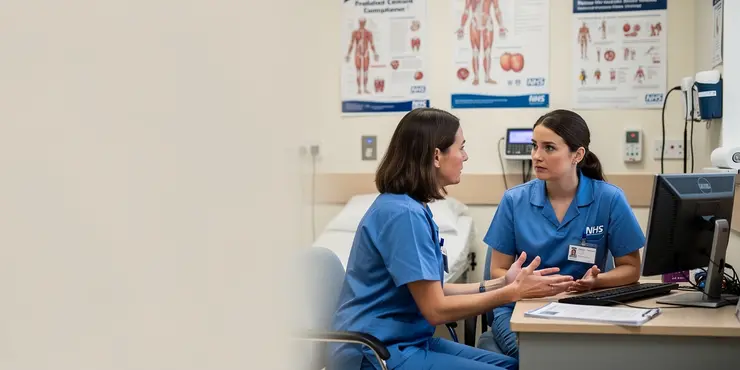
Is it safe to take cold showers during a heatwave?
Relevance: 41%
-
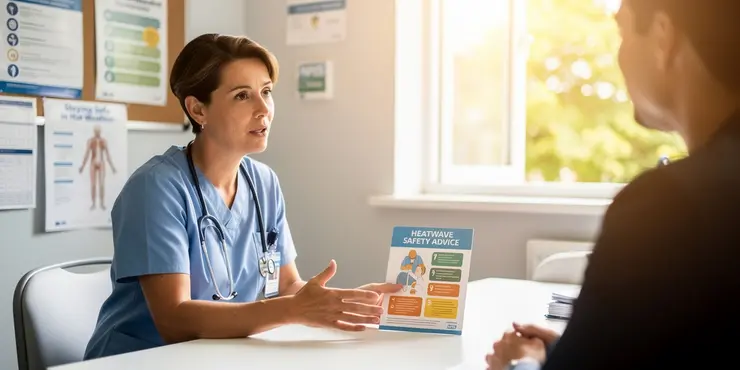
What activities should I avoid during a heatwave?
Relevance: 40%
-
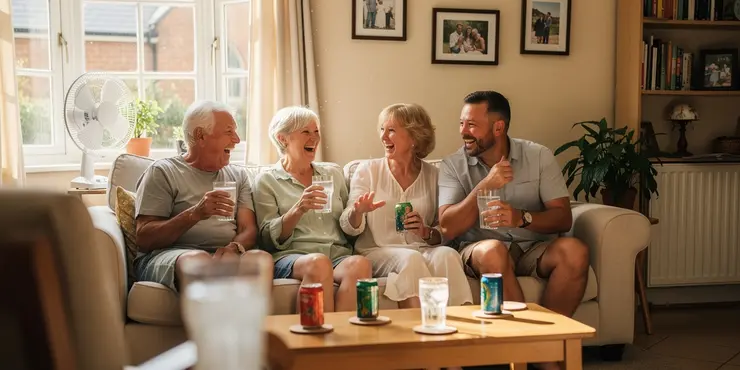
How to stay cool during a heatwave
Relevance: 40%
-
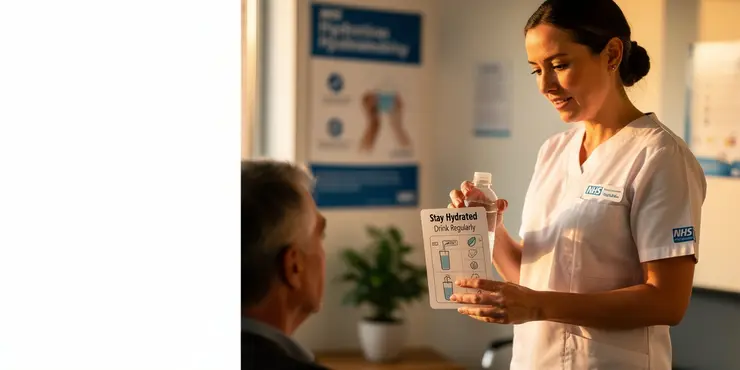
How can I prevent heatstroke during a heatwave?
Relevance: 40%
-
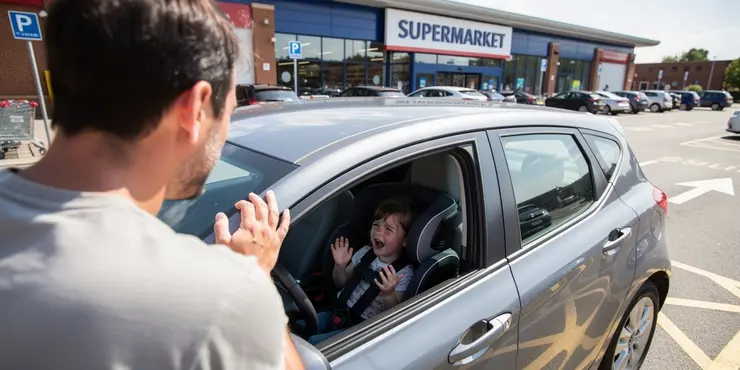
Can staying in a car during a heatwave be dangerous?
Relevance: 39%
-
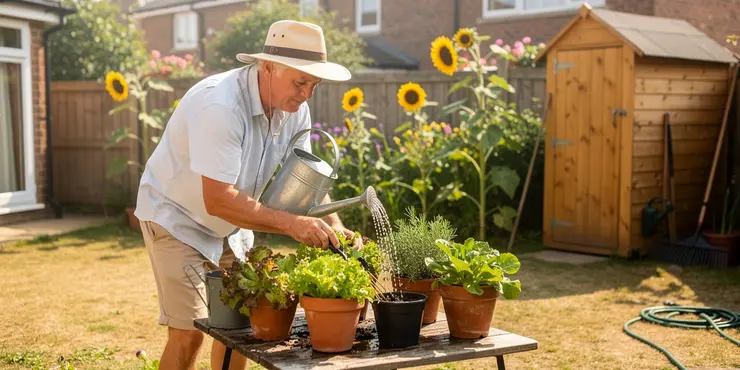
How can I keep my plants alive during a heatwave?
Relevance: 38%
-
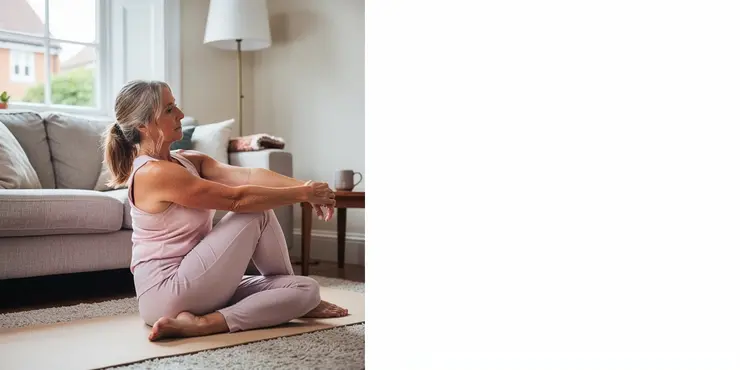
Should I adjust my exercise routine during a heatwave?
Relevance: 36%
-
Should individuals with certain medical conditions avoid aspirin?
Relevance: 36%
-
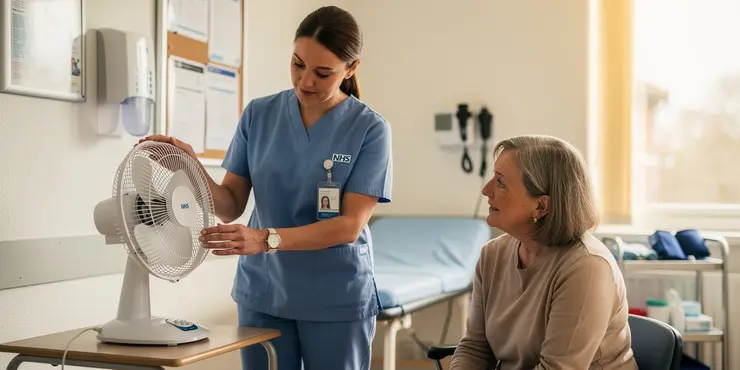
How can I sleep comfortably during a heatwave?
Relevance: 36%
-
Can certain medical conditions prevent receiving blood transfusions?
Relevance: 35%
-
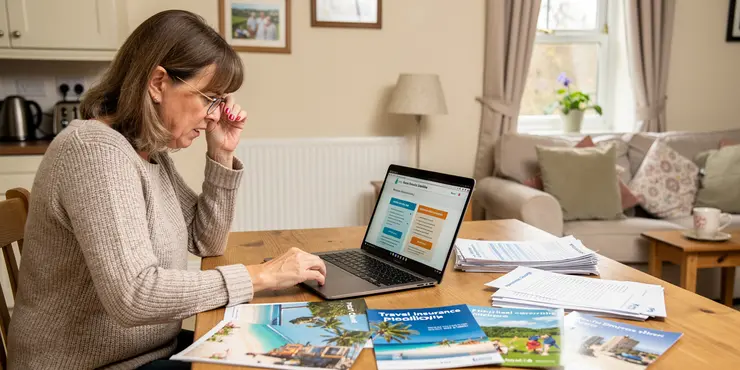
Are pre-existing medical conditions covered by holiday insurance policies?
Relevance: 35%
-
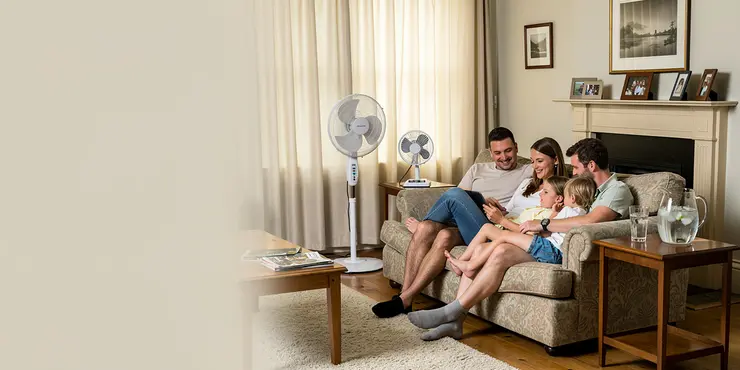
How can I stay cool indoors during a heatwave?
Relevance: 35%
-

What foods are best to eat during a heatwave?
Relevance: 34%
-
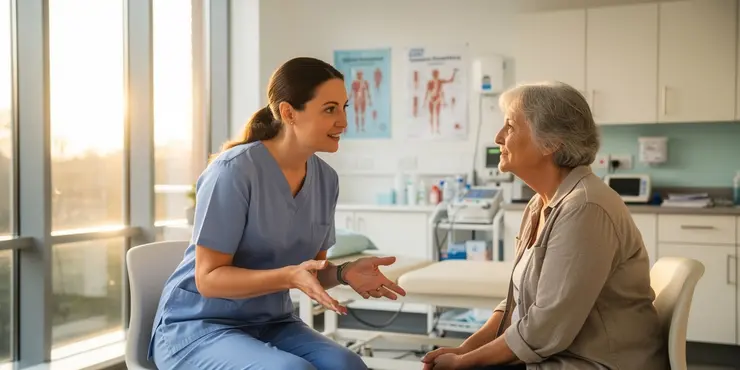
What is special K?
Relevance: 34%
-
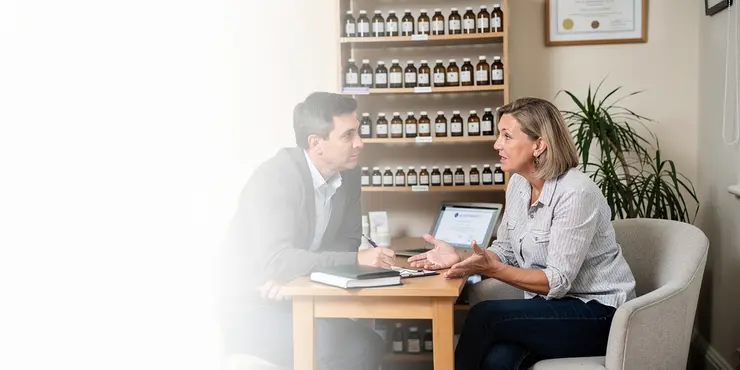
Can homeopathy treat all medical conditions?
Relevance: 34%
-
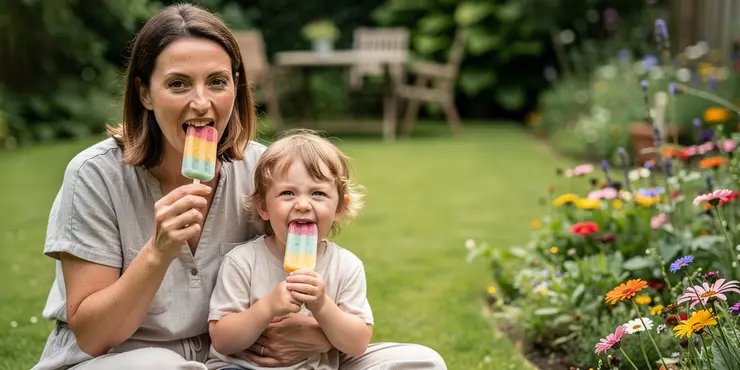
How can I keep my kids cool during a heatwave?
Relevance: 33%
-
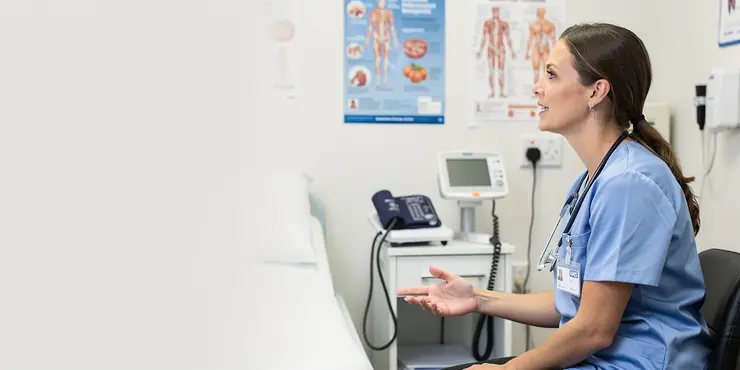
Are there opportunities for specialization in primary care support?
Relevance: 32%
-
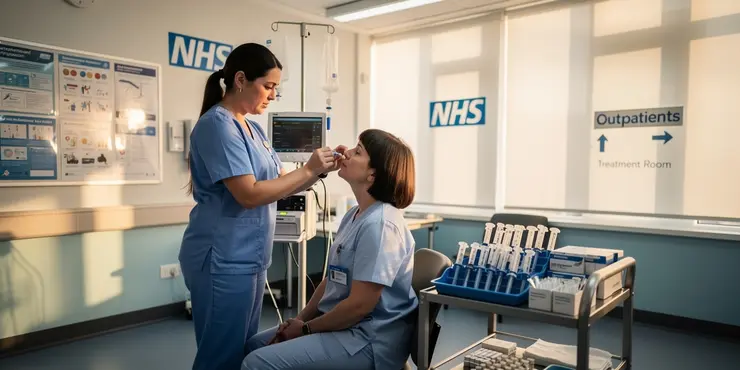
What precautions are necessary when using ketamine?
Relevance: 32%
-
Can I receive specialized treatment in EU countries?
Relevance: 31%
-
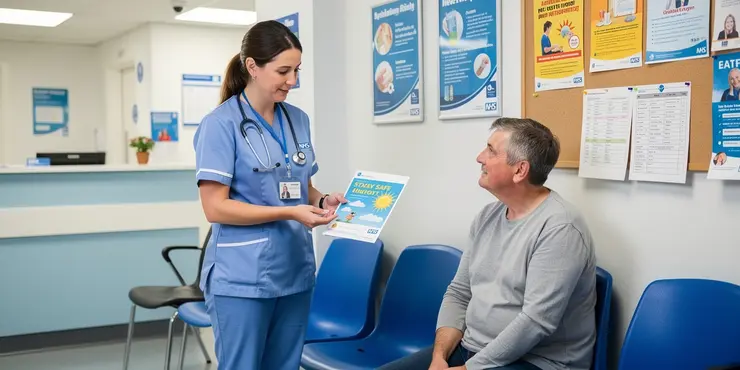
How can I prevent heat-related illnesses?
Relevance: 30%
-
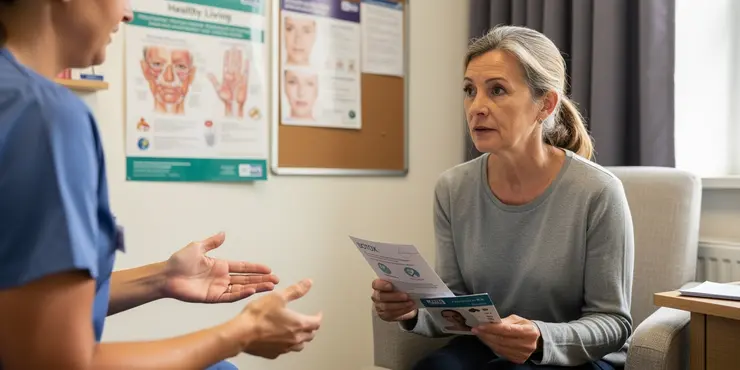
What precautions should I take before getting Botox?
Relevance: 30%
-
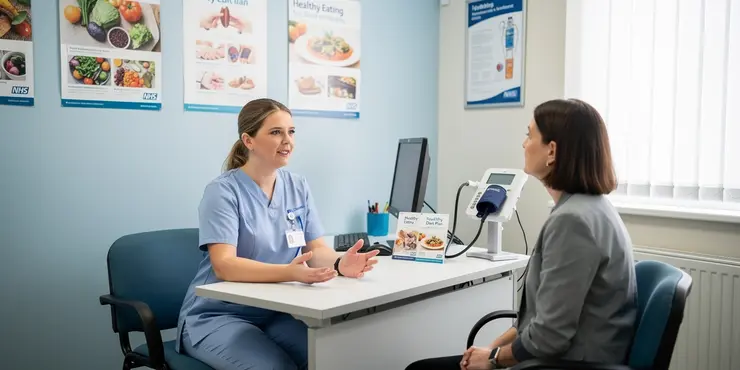
What happens if I have special dietary needs?
Relevance: 29%
-
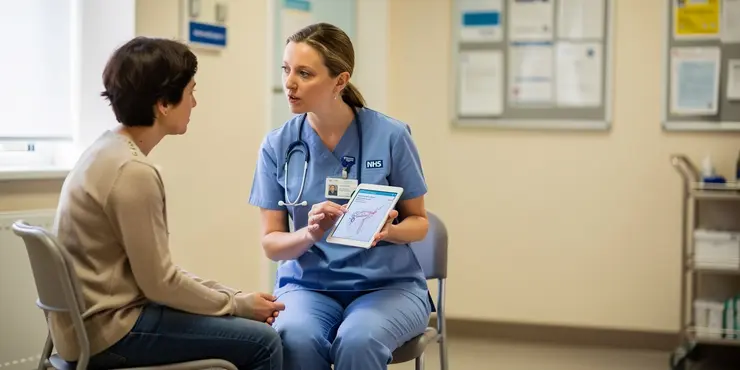
Are there any medical conditions that disqualify someone from using weight loss jabs?
Relevance: 28%
-
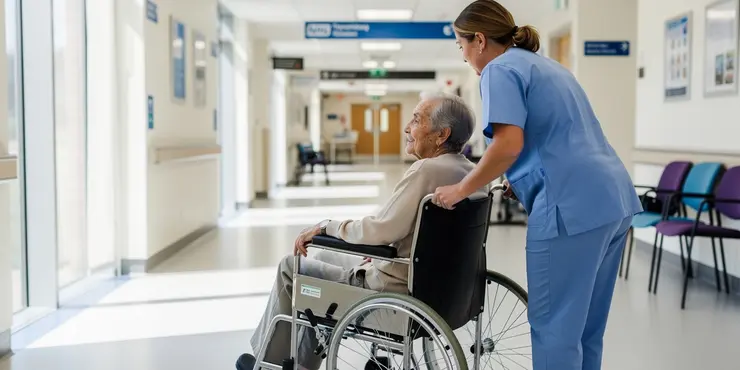
What safety precautions should be taken when using mobility equipment?
Relevance: 28%
-
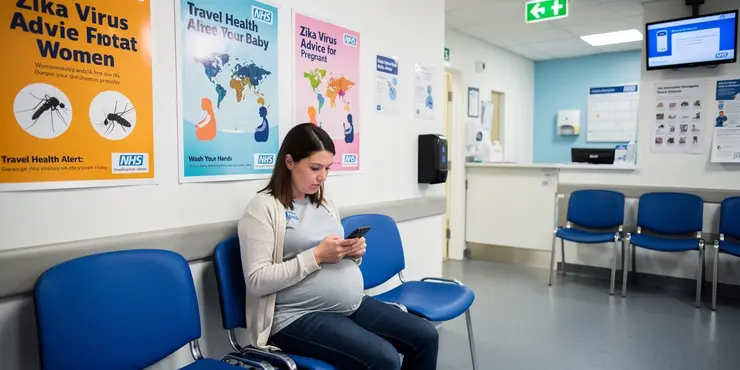
What precautions should pregnant women in the UK take regarding Zika virus?
Relevance: 28%
-
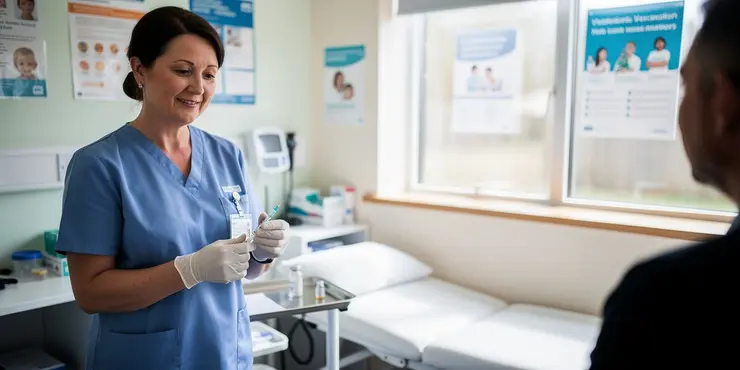
What precautions can be taken to avoid Super Flu?
Relevance: 27%
-
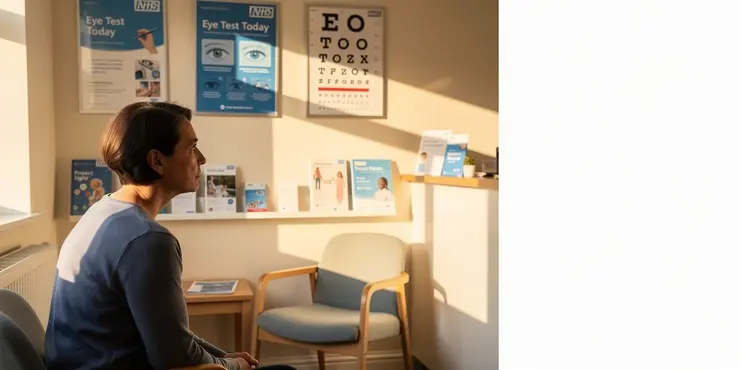
Do I need any special equipment for eye self-testing?
Relevance: 27%
-
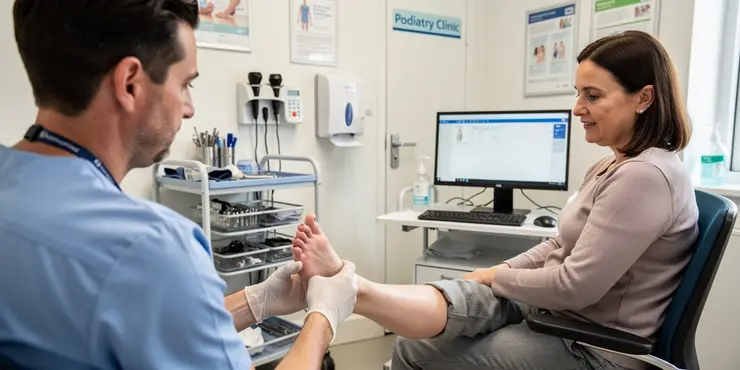
Diabetic Foot Conditions Podiatrist
Relevance: 27%
Understanding the Risks of Heatwaves
Heatwaves can pose significant health challenges, especially for individuals with pre-existing medical conditions. In the UK, heatwaves have become more frequent and severe. People with conditions such as cardiovascular diseases, respiratory illnesses, diabetes, and kidney issues are at increased risk of complications during high temperatures. It is crucial to manage these conditions carefully and take additional precautions to safeguard your health during a heatwave.
Stay Hydrated
One of the most important steps to take during a heatwave is to ensure you stay well-hydrated. This is particularly crucial if you have conditions like diabetes or kidney disease, where hydration plays a key role in managing your health. Aim to drink plenty of fluids, primarily water, throughout the day. Avoid excessive consumption of caffeinated or alcoholic beverages, as they can contribute to dehydration.
Keep Cool
Keeping your living environment cool can help prevent heat-related illnesses. If you have respiratory conditions, hot air can exacerbate symptoms. Use fans or air conditioning if available, and keep curtains or blinds closed during the hottest parts of the day. You can also take cool showers or baths to lower your body temperature. Wear loose, light-colored clothing to help keep your body cool.
Monitor Your Symptoms
If you have a chronic condition, it's important to monitor your symptoms closely during a heatwave. High temperatures can affect how your body manages these conditions. Ensure you are aware of how heat can influence your specific condition and watch for signs of heat exhaustion or heatstroke, such as dizziness, headache, or nausea. Seek medical advice if you feel unwell.
Medication Management
High temperatures can affect how medications work, either by altering their effectiveness or by increasing side effects. Consult your healthcare provider about any necessary adjustments to your medication routine during a heatwave. Keep medications stored in a cool, dry place to prevent deterioration.
Check On Vulnerable Individuals
If you have family members or neighbors with medical conditions, it's important to check on them regularly during a heatwave. They may require assistance to stay hydrated and cool. Ensuring that vulnerable individuals are safe and have access to necessary resources can prevent heat-related complications.
Plan Your Day
During a heatwave, schedule any necessary activities for cooler parts of the day, such as early morning or late evening. Avoid strenuous activities during peak temperatures, especially if you have a medical condition that could be worsened by heat. Resting in a cool environment can help manage your health effectively.
Understanding Heatwaves
Heatwaves are very hot weather that can be bad for your health. In the UK, there are now more heatwaves, and they are hotter. People with health problems like heart disease, breathing problems, diabetes, or kidney issues need to be extra careful. It's important to take special care of your health when it's very hot.
Drink Lots of Water
When it's hot, make sure to drink plenty of water. It's very important if you have diabetes or kidney problems. Drinking water helps your body stay healthy. Try not to drink too much coffee or alcohol because they can make you thirsty.
Stay Cool
Keep your home cool when it's hot outside. If you have breathing problems, the hot air can make you feel worse. Use a fan or air conditioner if you can, and keep curtains closed when it's sunny. Take cool showers or baths, and wear loose, light clothes to help you stay cool.
Watch Your Health
If you have a long-term health problem, keep an eye on how you're feeling during a heatwave. The heat can make your condition harder to manage. Look out for feeling dizzy, headaches, or feeling sick, as these may be signs of heat exhaustion. Ask a doctor for help if you feel unwell.
Take Care with Medicines
Heat can change how medicines work. Talk to your doctor to see if you need to change your medicine routine when it's hot. Keep your medicines in a cool, dry place so they don't spoil.
Help Others
If you know someone who has health problems, check on them during a heatwave. They might need help to drink enough water and stay cool. Making sure they are safe can stop them from getting sick from the heat.
Plan Activities Wisely
During a heatwave, do important things when it's cooler, like in the morning or evening. Try to avoid hard work or exercise when it's very hot. Rest in a cool place to help your body stay healthy.
Frequently Asked Questions
What is a heatwave?
A heatwave is a prolonged period of excessively hot weather, which may be accompanied by high humidity.
Why are heatwaves particularly dangerous for people with medical conditions?
People with medical conditions may be more vulnerable to heat-related illnesses because their bodies may not handle stress from heat as effectively.
What medical conditions increase the risk during a heatwave?
Conditions such as heart disease, respiratory diseases, diabetes, and kidney disease can increase risk during a heatwave.
Should I stay indoors during a heatwave if I have a medical condition?
Yes, it is advisable to stay in air-conditioned or cooler environments as much as possible during a heatwave.
How can dehydration impact people with medical conditions during a heatwave?
Dehydration can worsen medical conditions and increase the risk of heat-related illnesses such as heat exhaustion or heat stroke.
Is it safe to exercise during a heatwave if I have a medical condition?
You should consult with your healthcare provider, but it's generally advisable to avoid strenuous activities during high heat, especially outdoors.
How much water should I drink during a heatwave if I have a medical condition?
It's important to stay hydrated, but the specific amount can depend on your condition; consult your doctor for personalized advice.
Can my medication be affected by high temperatures?
Yes, some medications can lose effectiveness or become harmful when stored at high temperatures.
Should I adjust my medication during a heatwave?
You should never adjust your medication without first consulting your healthcare provider.
What symptoms should I watch for during a heatwave if I have a medical condition?
Symptoms like dizziness, headache, rapid heartbeat, or confusion can be signs of heat-related illnesses and require immediate attention.
Can using a fan help during a heatwave?
Fans can provide comfort but may not prevent heat-related illnesses when temperatures are very high. Air conditioning is more effective.
Should I plan meals differently during a heatwave?
Eat smaller, lighter meals and avoid hot and heavy foods to help your body stay cool.
Are there any foods or drinks I should avoid during a heatwave if I have a medical condition?
Avoid alcohol and drinks with caffeine or high sugar content, as they can lead to dehydration.
How can I keep my home cool during a heatwave?
Use air conditioning, close curtains during the day, use reflective window shades, and avoid using heat-generating appliances.
Is it safe to take cold showers or baths to cool down?
Yes, cool showers or baths can help lower body temperature safely.
What clothing is best during a heatwave?
Wear lightweight, loose-fitting, light-colored clothing to help keep cool.
Should I check in on others during a heatwave?
Yes, check on relatives and neighbors, especially those who are elderly or have medical conditions.
How can I recognize heat exhaustion or heat stroke?
Symptoms of heat exhaustion include heavy sweating and weakness, while heat stroke symptoms include high body temperature and confusion.
What should I do if I or someone else shows signs of heat-related illnesses?
Move to a cooler place, drink water, and seek medical help if symptoms are severe.
Can I rely on weather updates for safety during a heatwave?
Yes, stay informed with local weather forecasts and heat alerts to take timely precautions.
What is a heatwave?
A heatwave is when it gets very hot for a few days in a row. The weather is much hotter than usual.
Here are some tips to stay safe in a heatwave:
- Drink lots of water.
- Stay in the shade or inside.
- Wear cool clothes.
- Use a fan to cool down.
A heatwave is when it is very hot for a long time. It can also feel sticky because of the air.
Why is hot weather extra dangerous for sick people?
Hot weather can make people who are already sick feel worse. People who have health problems need to be extra careful. Here are some tips to help: - Drink lots of water. - Stay inside where it is cool. - Ask a friend or family member for help if you feel bad. Remember, staying cool and drinking water can help keep you safe.People with certain health problems might get sick from the heat more easily. Their bodies might not cope with heat stress as well.
What health problems make a heatwave more dangerous?
Some health problems can make hot weather dangerous. If you have these, be extra careful:
- Heart problems
- Breathing problems like asthma
- Diabetes
- Kidney problems
- Mental health issues
Make sure to drink plenty of water and stay cool. Use a fan or air conditioning, and wear light clothes. Always ask for help if you feel unwell.
Some health problems like heart disease, breathing problems, diabetes, and kidney disease can make it more dangerous when it's very hot outside.
What should I do during a heatwave if I have a health problem?
Stay inside where it is cool. This can help you feel better.
Yes, it is a good idea to stay in places that have air conditioning or are cooler when it is very hot outside.
What happens to people with health problems when they don't drink enough water in hot weather?
When it is very hot, people with health problems need to drink plenty of water. Drinking water helps keep the body cool and working well.
If you do not drink enough water, you might feel dizzy or get a headache. It can make you feel tired too.
People with health problems like heart trouble or diabetes need to be extra careful. They should drink water more often, even if they are not thirsty.
It helps to stay indoors where it is cool and wear light clothing. You can use a fan or a wet cloth to keep cool too.
Getting too dry can make you more sick and can make it easier to get sick from the heat, like feeling too hot and dizzy or getting heat stroke.
Can I exercise when it's very hot if I have a health problem?
Talk to your doctor, but it's usually a good idea to not do hard activities when it's very hot outside.
How much water should I drink when it's very hot and I have a health problem?
When it's really hot outside, it's important to drink water. This is even more important if you have a health problem.
Here's what you can do:
- Talk to your doctor or nurse. They can tell you how much water you need to drink.
- Drink small amounts of water often, even if you're not thirsty.
- Use a water bottle to help you remember to drink.
If you feel dizzy, tired, or have a headache, you might need to drink more water.
Drinking water is important. Talk to your doctor to know how much water is good for you.
Can hot weather change my medicine?
Yes, some medicines can stop working or even become harmful if they get too hot.
Should I change my medicine when it's very hot?
If it is very hot outside, called a heatwave, talk to your doctor about your medicine. They can tell you if it is safe to take the same amount or if you need to change it. Remember to drink plenty of water and stay cool.
Always talk to your doctor before changing your medicine.
What signs should I look for in hot weather if I am sick?
Feeling dizzy, having a headache, or a fast heartbeat, or getting confused can be signs that you are too hot and need help right away.
Can a fan help when it's very hot outside?
When it's really hot, a fan can help you feel cooler.
Here are some tips for using a fan when it’s hot:
- Set up the fan so it blows air on you.
- Make sure the room is not too small, so air can move around.
- Use a damp cloth on your skin to feel cooler.
- Drink lots of water to stay hydrated.
These tips can help you stay comfortable during hot times.
Fans can help you feel better, but they might not stop you from getting sick in really hot weather. Air conditioning works better.
What should I eat when it's really hot outside?
Eat small meals and light foods. Don't eat hot or heavy foods. This helps keep your body cool.
What foods or drinks should I not have during a heatwave if I'm sick?
When it is very hot and you have a health problem, some foods and drinks can make you feel worse. Here are some tips:
- Drink lots of water. It keeps you cool and healthy.
- Avoid drinks with caffeine like coffee or tea. They can make you lose water.
- Stay away from sugary drinks like soda. They can make you thirsty.
- Try not to eat spicy or heavy foods. They make your body warmer.
It's also a good idea to ask a doctor or nurse what is safe for you to eat and drink. You can use a fan or sit in the shade to stay cool.
Don't drink alcohol. Don't drink things with caffeine like soda or coffee. Don't drink sugary drinks like soda. They can make your body lose water.
How can I keep my home cool when it's very hot outside?
Here are some tips to help you keep your home cool on a hot day:
- Close Curtains: Shut your curtains to keep the sun out.
- Use a Fan: Turn on a fan to move air around the room.
- Drink Water: Make sure to drink lots of water.
- Wear Light Clothes: Put on clothes that are light and loose.
- Open Windows at Night: Open windows at night to let cool air in.
- Use Cool Cloths: Place a cool, wet cloth on your skin to feel cooler.
Ask someone for help if you need it. Stay safe and try to stay cool!
Keep cool with air conditioning. Close curtains in the day to stop sunlight. Use shiny window covers to bounce heat away. Don’t use things that make heat, like ovens.
Are cold showers or baths safe for cooling down?
Wondering if a cold shower or bath is okay to cool down? Here’s what you need to know.
Yes, cold showers or baths can help you cool down when you are hot. But it's good to be careful.
- Start with lukewarm water before turning it colder.
- If you feel too cold or start shivering, get out of the shower or bath.
- Ask an adult for help if you’re not sure.
Try using a thermometer to check the water temperature. Make sure it's not too cold.
Yes, taking cool showers or baths can help make your body cooler in a safe way.
What clothes should I wear when it's very hot?
When it is very hot, wearing the right clothes can help you stay cool and comfortable. Here are some tips:
- Wear light clothes. This means clothes are not heavy.
- Choose light colors. They keep you cooler.
- Wear loose clothes. This helps air move around your body.
- Choose cotton clothes. Cotton is good because it lets your skin breathe.
Remember, it is also important to drink water often when it's hot. Stay in the shade, or find air-conditioned places to cool down.
Wear clothes that are light, not tight, and in light colors to stay cool.
Should I check on others when it's very hot?
It is important to check on friends, family, and neighbors when it's very hot outside. They might need help or friendly support.
Here are some tips to help:
- Call them or visit to see if they are okay.
- Make sure they have water to drink.
- Help them find a cool place if their home is too hot.
- Ask if they need any help with shopping or other tasks.
You can use things like friendly phone reminders to remember to check on others. This way, you show you care and help keep everyone safe during the hot weather.
Yes, you should check on your family and people who live near you. It is important to make sure they are okay, especially if they are older or not feeling well.
How do I know if someone has heat exhaustion or heat stroke?
If someone is too hot, they might feel sick. This is called heat exhaustion or heat stroke. Here are some signs:
- Feeling very thirsty
- Feeling dizzy or weak
- Feeling sick or throwing up
- Sweating a lot or not at all
- Headache
- Fast heartbeat
- Skin feeling hot
If you see these signs, help the person cool down. Move them to a cool place, give them water, and seek help.
You can use pictures or flashcards to remember these signs.
When you are too hot, you might sweat a lot and feel weak. This is called heat exhaustion.
If it gets worse, you might have a really high body temperature and feel confused. This is called heat stroke.
You can use a fan or drink water to stay cool. Ask an adult if you need help.
What can I do if I or someone else feels sick from the heat?
Go to a cool place. Drink some water. Get a doctor if you feel very bad.
Are weather updates safe to use during a heatwave?
Weather updates can help you stay safe in a heatwave. They tell you how hot it will be and if any warnings are out. Follow the weather updates every day.
Here are some tips to stay safe:
- Drink lots of water to stay cool.
- Stay inside during the hottest parts of the day.
- Wear light clothes and use sunscreen if you go outside.
You can use weather apps on your phone or watch the weather on TV. Ask an adult to help if you need it.
Yes, listen to the weather news for your area. This helps you stay safe from the heat.
Useful Links
This website offers general information and is not a substitute for professional advice.
Always seek guidance from qualified professionals.
If you have any medical concerns or need urgent help, contact a healthcare professional or emergency services immediately.
Some of this content was generated with AI assistance. We’ve done our best to keep it accurate, helpful, and human-friendly.
- Ergsy carfully checks the information in the videos we provide here.
- Videos shown by Youtube after a video has completed, have NOT been reviewed by ERGSY.
- To view, click the arrow in centre of video.
- Most of the videos you find here will have subtitles and/or closed captions available.
- You may need to turn these on, and choose your preferred language.
- Go to the video you'd like to watch.
- If closed captions (CC) are available, settings will be visible on the bottom right of the video player.
- To turn on Captions, click settings .
- To turn off Captions, click settings again.
More Items From Ergsy search
-

Should I take any special precautions if I have a medical condition during a heatwave?
Relevance: 100%
-

Are there any special precautions for pets during a heatwave?
Relevance: 81%
-

Is it safe to exercise outside during a heatwave?
Relevance: 56%
-

What should I do during a heatwave?
Relevance: 50%
-

Is it necessary to check on neighbors during a heatwave?
Relevance: 49%
-

What are the long-term effects of repeated heatwave exposure?
Relevance: 46%
-

How can I keep children safe during a heatwave?
Relevance: 46%
-

Should I avoid alcohol during a heatwave?
Relevance: 44%
-

How much water should I drink during a heatwave?
Relevance: 43%
-

What should I wear during a heatwave?
Relevance: 42%
-

What apps or services can help me monitor the weather during a heatwave?
Relevance: 41%
-

How can I ensure pets are safe during a heatwave?
Relevance: 41%
-

Is it safe to take cold showers during a heatwave?
Relevance: 41%
-

What activities should I avoid during a heatwave?
Relevance: 40%
-

How to stay cool during a heatwave
Relevance: 40%
-

How can I prevent heatstroke during a heatwave?
Relevance: 40%
-

Can staying in a car during a heatwave be dangerous?
Relevance: 39%
-

How can I keep my plants alive during a heatwave?
Relevance: 38%
-

Should I adjust my exercise routine during a heatwave?
Relevance: 36%
-
Should individuals with certain medical conditions avoid aspirin?
Relevance: 36%
-

How can I sleep comfortably during a heatwave?
Relevance: 36%
-
Can certain medical conditions prevent receiving blood transfusions?
Relevance: 35%
-

Are pre-existing medical conditions covered by holiday insurance policies?
Relevance: 35%
-

How can I stay cool indoors during a heatwave?
Relevance: 35%
-

What foods are best to eat during a heatwave?
Relevance: 34%
-

What is special K?
Relevance: 34%
-

Can homeopathy treat all medical conditions?
Relevance: 34%
-

How can I keep my kids cool during a heatwave?
Relevance: 33%
-

Are there opportunities for specialization in primary care support?
Relevance: 32%
-

What precautions are necessary when using ketamine?
Relevance: 32%
-
Can I receive specialized treatment in EU countries?
Relevance: 31%
-

How can I prevent heat-related illnesses?
Relevance: 30%
-

What precautions should I take before getting Botox?
Relevance: 30%
-

What happens if I have special dietary needs?
Relevance: 29%
-

Are there any medical conditions that disqualify someone from using weight loss jabs?
Relevance: 28%
-

What safety precautions should be taken when using mobility equipment?
Relevance: 28%
-

What precautions should pregnant women in the UK take regarding Zika virus?
Relevance: 28%
-

What precautions can be taken to avoid Super Flu?
Relevance: 27%
-

Do I need any special equipment for eye self-testing?
Relevance: 27%
-

Diabetic Foot Conditions Podiatrist
Relevance: 27%


